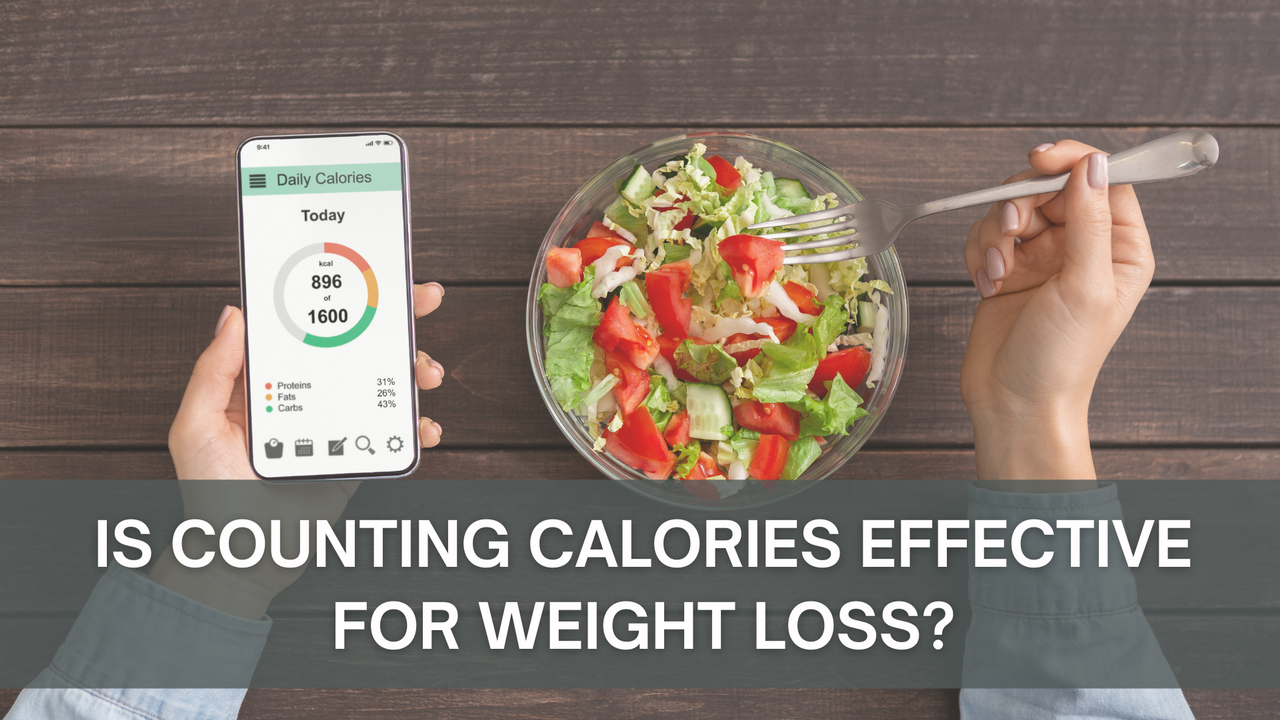The Calorie-Counting Myth

This is a common question we receive from patients in our Functional Wellness Clinic as well as listeners to the Wellness Radio.
Should you count calories? Is counting calories an effective way to lose weight?
This time, the question came from someone who had tried keto and was not seeing the desired results. She was on keto for weight loss but nothing was really happening. On the January 2, episode of Wellness Radio, we answered this question.
The Purpose of the Keto Diet
It’s important to remember that the main purpose of the keto diet is to get your body into a metabolic state where it produces ketones, burning fat for fuel instead of glucose.
This metabolic state isn’t meant strictly for weight loss but a whole host of other health benefits. It’s therefore important to achieve this metabolic state by doing the keto diet correctly.
It’s become popular to consume lots of conventional meat and dairy on the keto diet, loading up on tons of cheese and processed meat. This might get you into ketosis, but it isn’t the healthiest way to do so and therefore you might not be able to reap the health benefits of the diet by eating these foods.
A better way of getting into ketosis would be to focus on grass-fed and pasture-raised meats, healthy sources of fat, nuts and seeds, and lots of organic cruciferous vegetables in your diet. (To learn how to implement Keto the right way, go through our Foundations of Nutrition course.)
If you’re not seeing the success you hoped for on the keto diet, take a look at your diet and see if there’s any way you could clean it up some, and consume a healthier selection of foods to support your overall goals.
Is Counting Calories Effective for Weight Loss?
To answer the question specifically, it will always be about the quality of the calories you consume and not so much the amount. Eating healthy fats and good quality protein is very satiating. These nutrient-dense foods will keep you fuller for longer, preventing you from snacking aimlessly throughout the day.
When you’re eating a diet that is highly nutritious, it becomes much less about count calories because your body will not crave more than it needs.
While we advocate for the keto diet as an effective tool for health, it will first be important to isolate the health issues your unique body is being affected by to determine the right path to heal yourself.
If you’ve been in ketosis for a long time, it might be time to vary your diet to include more carbs, more fruit, or more plant-based foods on certain days each week.
Diet variation is a great way to keep your body healthy and functioning at its optimal level, and too little of us practice diet variation in the modern world. Our ancestors ate what was available to them at the time of year. Lots of fruit and vegetables and more of a plant-based diet during the warm summer months and more protein and fats as the winter settled in. This diet variation has been lost with the mass production of food, but it can be very beneficial to your health.
Lastly, it's important to note that weight loss resistance, not losing weight regardless of your efforts, might not be from your diet at all. Instead, it could be from toxicity or other underlying health issues that need to be addressed instead. If this is the case, no diet or calorie restriction will get you to your weight goals in a healthy and sustainable way. If you suspect this is the case, consider one of the tests we offer, or set up a functional wellness consultation with us, to help us determine the root cause of this weight loss resistance.
3 Things You Can Do Right Now to Lose Weight
We recommend starting with intermittent fasting if weight loss is your goal. Start with fasting for 16 hours per day, allowing yourself an eating window of eight hours and gradually reducing that eating window as you feel comfortable.
Intermittent fasting is a great way to get the body to reset and heal itself, and it promotes healthy weight loss.
Secondly, eat your fat and proteins first. As you break your fast, include healthy sources of fat and organic proteins in your first meal of the day. These foods will keep you fuller for longer, allowing you to concentrate on your day ahead and not graze on unhealthy foods throughout the day.
Finally, practice diet variation. If you’ve been in ketosis for a while, perhaps it’s time to include healthy carbs like yams or sweet potatoes or organic jasmine rice. You can also try to incorporate some fruits into your diet. Or if you have not tried the keto diet yet, then perhaps it is the diet for you now to support your health goals.
Disclaimer: This content is strictly the opinion of Drs. Warren and is for informational and educational purposes only. It is not intended to provide medical advice or to take the place of medical advice or treatment from a personal physician. All recipients of this content are advised to consult their doctors or qualified health professionals regarding specific health questions. Drs. Warren do not take responsibility for possible health consequences of any person or persons reading or following the information in this educational content. All recipients of this content, especially those taking prescription or over-the-counter medications, should consult their physicians before beginning any nutrition, supplement, or lifestyle program.
Wellness Radio: 01/02/21
